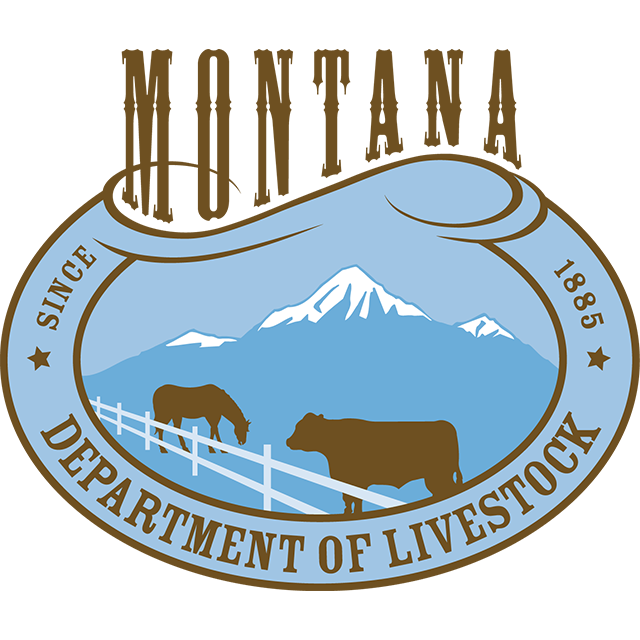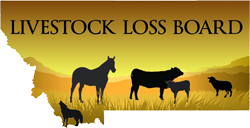
Here to serve the people of Montana and its livestock industry.
Livestock Loss Board
- Board & Meeting Information
- How to Request an Investigation
- USDA Market Reports
- Livestock Loss Statistics
- Loss Prevention Toolkit
- Grizzly Deterrence Guidelines
- 2026 Grant Application (NEW)
- W-9 (required for grant applicants)
- Grant Supplement Form
- Related Links
Contact Information
Department of Livestock
Livestock Loss Board
PO Box 202005
Helena, Montana 59620-2005
(406) 444-5609
Email: LIVLossBoard@mt.gov
Livestock Loss Board

The Montana Livestock Loss Board was established by the legislature in 2007 to address economic losses due to wolf predation and to create incentives for producers to take proactive, preventative steps to decrease the risk of loss.
The purpose of the Montana Livestock Loss Program is to acknowledge the importance of economic viability and sustainability of individual livestock operators in Montana who are negatively affected by wolves, grizzly bears, black bears or mountain lions. Specifically, the purpose of the loss reduction and mitigation programs are:
- To provide financial reimbursements to producers for losses caused by wolves, grizzly bears, black bears or mountain lions based on program criteria.
- To proactively apply prevention tools and incentives to decrease the risk of wolf, grizzly bear, black bears or mountain lion caused losses.
Mission
To help support Montana Livestock communities by reducing the economic impacts of wolves,grizzly bears, black bears and mountain lions on individual producers by reimbursing confirmed and probable wolf, grizzly bear, black bears and mountain lion caused losses and helping to reduce their losses by approving projects and funding programs that will discourage wolves, grizzly bears, black bears and mountain lions from killing livestock.
Goals & Objectives
- Develop a compensation framework that integrates with the overall Montana wolf, grizzly, black bears bear and mountain lion programs.
- Develop an incentive program that integrates with the overall Montana wolf, grizzly bear, black bears and mountain lion programs.
- Recognize the importance of economic viability and sustainability of individual livestock operators in Montana.
- Recognize the complex interactions between livestock, wolves, grizzly bears, black bears and mountain lions.
- Seek a broad range of funding sources to meet the needs to provide long-term, viable "compensation" solutions.
- Work with federal and state agencies to develop a broad spectrum of options to reduce conflicts and potential depredations.